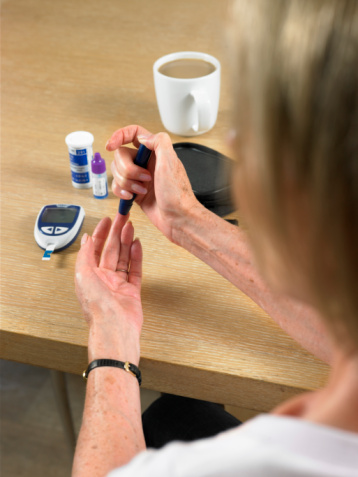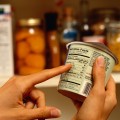Blood Glucose “Selfies” and More
 Blood glucose “selfies” increase diabetes awareness
Blood glucose “selfies” increase diabetes awareness
Diabetes.co.uk has launched a new campaign of blood glucose “selfies” in order to raise awareness and money for [glossary]diabetes[/glossary] research. This was inspired by Cancer Research UK’s very successful “No makeup selfie” campaign, which raised over $3 million in just 3 days. Hundreds of people have taken part, showing pictures of themselves next to a blood glucose reading on their [glossary]glucose meter[/glossary]s. Anyone who posts a picture is given the chance to donate to one of a few charities, including JDRF, the world leader in funding for type 1 diabetes research. The organization hopes to use this campaign to raise awareness of the hardships of living with diabetes.
Back pain found to be leading cause of disability
A new study, published in the Annals of Rheumatic Diseases, has made some surprising findings. The study looked at the number of cases of disability caused by lower back pain. It was found that back pain caused more disability than any other single source, with as many as 1 in 10 people suffering. And, that number grows as people get older. The condition is often overlooked and does not usually come from any serious disease, but is known to cause severe pain and emotional problems.
New method to determine risk of diabetes in women
Scientists as the University of Birmingham have come up with a new way to measure the effect that Polycystic Ovary Syndrome (PCOS) has on a woman’s chances of developing diabetes. 1 in every 5 women will suffer from PCOS at some point in their lives, and research suggests that they have as much as 3 times the risk of developing type 2 diabetes. Researchers have found that measuring for large amounts of two different hormones (called androstenedione and testosterone) in a woman’s body is a good way to identify risks and plan possible treatments.
Google launches online tool to help you choose the right foods
Google launched a service at the end of 2013 that allows you to search for two different foods and compare the nutritional content of both. The service is simple to use: just type in two different foods and follow with the word “compare” and then you can see the nutrients side by side. As well as basic ingredients, it also allows you to search for dishes, which you can change to suit your own recipe. All of the details come from the USDA’s National Nutrient Database, so most common foods can be used.
Weight gain within one year of pregnancy can increase diabetes risk
Researchers in Toronto, Canada spent 12 months studying the health of 305 women after they gave birth. The results suggest that those who had gained weight over the 12 months (roughly a quarter of the subjects) were at a higher risk of diabetes and heart disease than others. Even though over 80% of women gained weight over the first 3 months, those that went on to lose it again showed healthy changes in their [glossary]blood glucose level[/glossary], [glossary]cholesterol[/glossary], and [glossary]blood pressure[/glossary]. The scientists suggest that the first 9 months after pregnancy are especially important for a woman’s health, but more research is needed.












